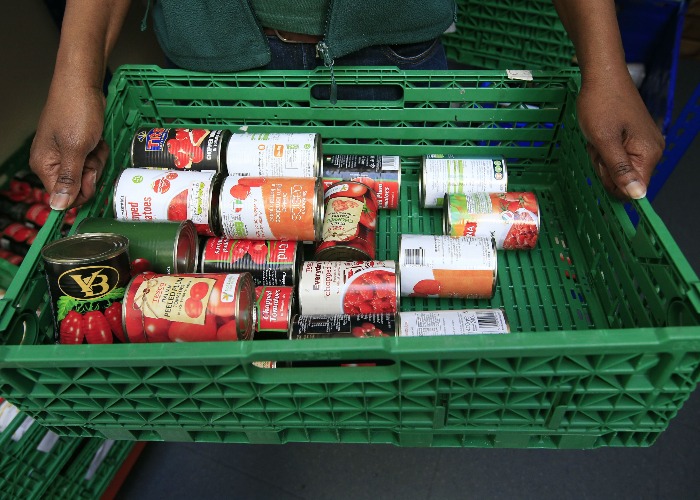The supplies food banks near you need - and how to donate

Christmas is a time for giving, and if you want to support food banks in your area, here's how you can help.
December is the busiest month of the year for food banks, according to the Trussell Trust, the charity behind a network of 420 food banks across the country. What’s more, the number of people turning to food banks has jumped sharply in recent years.
In December last year, its network provided 159,388 three-day emergency food supplies to people in crisis, with 65,622 of these going to children. That’s a 49% increase on the monthly average for 2017-18, and up by 10% on the number of supplies provided in December 2016.
What’s more, the Trust expects this to increase further this year, with increasing levels of food bank use throughout the year.
Why is food bank use increasing?
According to the Trussell Trust, the most common reasons for referral to a food bank are the inability of benefit payments to cover essential living costs and issues with benefit payments.
A big part of this is Universal Credit, where people are required to wait five weeks before receiving their first payment, a situation that is causing significant difficulties for vulnerable people.
Emma Review, chief executive of the Trussell Trust, said that ultimately it was unacceptable that anyone should need to use a food bank in the first place.
She continued: “We do not want to be here in the long-term, continuing to pick up the pieces. That’s why we’re urging the Government to ensure benefits payments reflect the cost of living and reduce the waiting time for universal credit to help ensure we are all anchored from poverty.”
Best ways to donate to charity: using gift aid, avoiding fees and more
Who can visit a food bank?
It’s worth noting that you can’t simply turn up off the street to try to get help from a food bank.
You will need to get a food bank voucher - these are issued by ‘local agencies’, like Citizens Advice, housing support officers, health visitors, children’s centres and social services, if they believe you are struggling to put food on the table.
You can contact your local food bank to talk through your situation and to be put in touch with a relevant local agency, and after a visit they will supply you with a food bank voucher if they deem it appropriate.

What do you get in a food parcel?
If you visit a food bank with a voucher, then you can exchange it for a parcel containing three days’ worth of emergency food.
A typical parcel contains the following:
-
Breakfast cereals
-
Soup
-
Pasta
-
Rice
-
Pasta sauce
-
Tinned beans
-
Tinned meat
-
Tinned vegetables
-
Tinned fruit
-
Tea or coffee
-
Sugar
-
Biscuits
-
Snacks
These parcels can normally be adapted to meet certain dietary needs, such as if you need them to be gluten-free or vegan.
How to leave money to charity in your will
What food banks need
It’s worth noting that each food bank is different - while some will have a surplus of particular items, others will be desperately short of them.
As a result, if you really want to help the food bank and the people who most require its services, it pays to do a little homework first on precisely what they need.
Thankfully it’s dead easy to find out precisely what each individual food bank needs, simply by visiting its website. You can find your local food bank using the Trussell Trust website.
Each individual website will detail what the food bank has plenty of, and what it needs most urgently. For example, my local food bank in Hertfordshire has plenty of beans and sugar, but is short on tinned fruit, tea bags, dried pasta, breakfast cereals and UHT milk.

How do I donate?
Each individual food bank site will detail where you can drop off items, and what times to aim for.
Alternatively, you can donate cash, so that the food bank can devote those funds to whatever it needs most.
Another option is to donate your unwanted clothes or furniture to the Trussell Trust’s various community stores, just as you would with any other charity shop.
Comments
Be the first to comment
Do you want to comment on this article? You need to be signed in for this feature